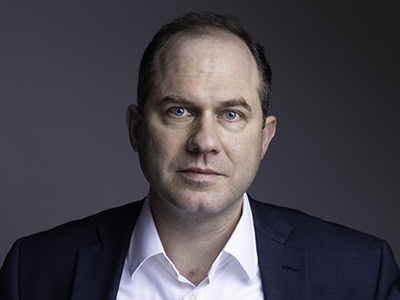Andrew Preston is a professor of American history at Cambridge University. He lives in Cambridge, United Kingdom, and has been a member since 2000.
Website: https://www.hist.cam.ac.uk/people/professor-andrew-preston

Andrew Preston
Alma mater/s: BA (history and political science), University of Toronto, 1996; MSc (international history), London School of Economics, 1998; PhD (history), Cambridge University, 2001
Fields of interest: America, international, religion, military, diplomatic, East Asia
Describe your career path. What led you to where you are today?
I kind of stumbled into this career, first heading to London to do a one-year terminal master’s degree because I liked history but was not sure I wanted to commit to a PhD program yet and wanted to go abroad. Then, once I figured out I liked history enough to do a PhD, I stayed in the UK for my PhD to be with my fiancée, an Englishwoman I met during my year in London. After my PhD I moved to New Haven, Connecticut, for three years to do a postdoc at Yale, then moved to British Columbia for my first tenure-track job at the University of Victoria, and then, finally, returned to Cambridge in 2006 to take up the post I have now.
What do you like the most about where you live and work?
Cambridge is an incredibly beautiful city but very much a company town. It is an intellectual hothouse where one is surrounded by extremely smart people (much smarter than I am) working on the most exciting projects, and the constant engagement with them is extremely stimulating and rewarding—that is a clichéd view of academic life in Cambridge, but it also happens to be true. Cambridge’s loosely federal collegiate structure, in which the colleges are not just dorms but autonomous institutions, brings one into daily contact not just with fellow historians but with amazing people at all career stages and across the social sciences and humanities. Cambridge strikes people as vertically hierarchical but it is actually democratically horizontal, and many of the best exchanges I have had are in faculty meetings with junior academics—the constant flow of junior research fellows ensures an annual renewal of intellectual lifeblood. The hothouse atmosphere is also challenging, sometimes even suffocating—it is difficult to know how to switch off sometimes, and the pressure can be intense—but on balance the benefits far outweigh the drawbacks. Plus everyone at some point passes through Cambridge, so I am always able to renew friendships and hear interesting people speak about their latest research.
What projects are you currently working on?
I am finishing a book on the idea of “national security” in American history, and after that I am starting a book on the origins of the Pacific War between Japan and the United States.
Have your interests evolved since graduation? If so, how?
Definitely. My PhD dissertation (which was also my first book) was on the policy-making in Washington that led to the escalation of the Vietnam War. But the subject of my most substantial research has been on a very different topic: the religious influence on American war and diplomacy. Teaching brought me to this change of direction, and I have been grateful for it ever since.
Is there an article, book, movie, blog etc. that you could recommend to fellow AHA members?
In terms of things I have read recently, Viet Thanh Nguyen’s two novels about the legacies of the Second Indochina War, The Sympathizer and The Committed, are superb reads but also really fascinating history.
What do you value most about the history discipline?
Its lack of methodological rigor and parsimony, its eclecticism, the fact that teaching and research are so symbiotic, and the freedom it gives me to make a career out of reading books I would probably read for the fun of it anyway.
Why is membership in the AHA important to you?
I have met so many colleagues, many of whom became close personal friends, through organizations like the AHA and SHAFR. I am just grateful for the space these associations provide for coming together, in-person and online. I also relish each issue of the AHR and Perspectives.
AHA members are involved in all fields of history, with wide-ranging specializations, interests, and areas of employment. To recognize our talented and eclectic membership, Perspectives Daily features a regular AHA Member Spotlight series.
This work is licensed under a Creative Commons Attribution-NonCommercial-NoDerivatives 4.0 International License. Attribution must provide author name, article title, Perspectives on History, date of publication, and a link to this page. This license applies only to the article, not to text or images used here by permission.
